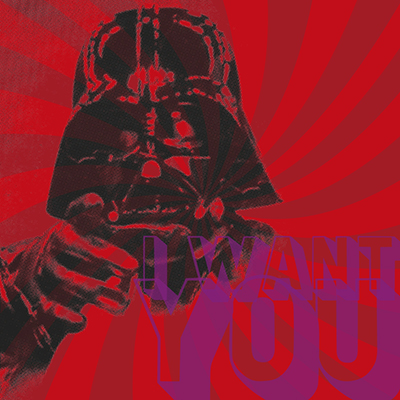By definition, marketing is the science of making certain people habitually do something that somebody else wants them to do, such as buying a specific brand every time; it is the art of ingraining habits. Marketing is attracting attention, arousing interest; it is persuasion, awakening desire, convincing, gaining confidence; marketing is strategic positioning and maintaining that position in the mind. Most marketing performs the service of imparting useful information to the consumer. However, there are situations where marketing clearly goes too far, to the dark side where it manipulates the consumer’s gullible mind:
- When marketing lies, or does not tell the whole truth, by twisting arguments and distracting the consumer from relevant facts about the product being sold.
- When marketing takes control of the consumer’s self-will to create a physical or psychological addiction.
In the first case there are myriads of strategies for distraction or camouflage – Fat Free, No Chemicals, With Liposomes, Low in Sodium, Light, etc. – to sell unhealthy products by promoting a secondary characteristic that mask their true nature. Onion rings labeled as having only 3% onion powder; sliced ham sold with bells and whistles when it only contains 30% of genuine ham; the list of fake products goes on and on.
Also in this first category of manipulation are those products in TV ads where the fine print is flashed so quickly at the bottom of the screen that you haven’t a chance to read what they now assume has been legitimately declared: such things as the enormous quantity of small payments (in large print) you have to make for that watch you want. Other times they try to camouflage a product with good qualities they do not possess, like “healthy” processed foods, so that you focus not on their defects but on their benefits: dairy products, sugary drinks and snacks that appear on television with tiny messages at the bottom encouraging us to eat more fruits and vegetables while doing daily exercise. How admirable that large corporations promote our health, sometimes even with the help of foundations! It’s a fantastic camouflage operation and, if we asked them, they would surely say we should be grateful for their public health campaign – undertaken along with the marketing for their distinctly unhealthy products, of course.
But it’s the second group of the dark side of marketing, whereby a person’s will is commandeered to create an addiction, that we are going to explore more deeply in this article. This appropriation of the will by marketing is achieved by one of three basic strategies:
- Physical addiction
- Kidnapping the reward circuit
- Raising emotional barriers.
The first strategy of appropriation is pure physical addiction to products like tobacco or alcohol. These products can produce dangerous addictions that are difficult to recover from, and often with irreversible consequences for the health. Sure, one could claim that any product can theoretically produce an addiction, but then again I don’t know a single person who has gone to the urgent care center to get his stomach pumped on account of his addiction to broccoli.
The second strategy for the appropriation of the will pertains to dopamine, the leading neurotransmitter for the formation of desire, the motivation molecule of the brain. Dopamine is released when we are presented with a new situation, and disappears when the novelty wears off or when pleasure fulfils the dreams of the desire [1]. With adequate marketing, the desire becomes a recurring dream. In certain cases, it goes even further to kidnap a person’s desire even to the point of addiction. The person will then consume the product without thinking, without tasting it, impelled by dopamine whose effect will terminate at best in a fleeting secretion of pleasure-causing neurotransmitters such as serotonin, after which we fall again into the insatiable arms of desire. The dark side of marketing kidnaps our reward circuit and replaces it with an ephemeral pleasure, meted out for example through processed foods, “likes” on social media, videogames, compulsive purchasing, or pornography, and finally causing even greater problems analogous to a physical addiction.
The third way to appropriate the will consists in raising emotional barriers. This is much more than Jack Trout’s Strategic Positioning, for example, where a specific defendable attribute is attached to a particular brand or company. Volvo and Safety is a clear example of strategic positioning. The emotional barrier is far more powerful, as it connects strong emotions to a product or to the competition, in such a way that the act of purchasing that brand is shielded no matter what. That’s right, no matter what! Does another brand offer more? The strong emotions of hatred, fear, superiority, personal identity and group identity come forth raging, and better still in combination with one another. If that happens, you will buy the product brand with as much determination as if it were an act of physical addiction. You will support your football team even if they lose, you will vote for your political party no matter what they say or do, you will eat processed foods even though you well know they can make you deathly ill, you will buy the newest and most expensive telephone although it’s hardly better than the one you’ve got. Your life decisions are thus reduced to desires implanted in the brain with emotional highs and lows when your team wins or loses, when your political party rises or falls, when you eat fast food or are deprived of it, when the latest telephone is in your hands or out of reach. It’s an emotional rollercoaster we live through, and it’s our kidnapped desire that straps us in for the ride. We can lose many things along the way, but the worst is losing our liberty, the liberty that balances between stimulus and response. We become zombies willing to consume whatever our political and corporate darksiders tell us to.
Now, let’s take up the consumer’s side and ask, “What can we consumers do to regain our liberty and free ourselves from this bondage?” Perhaps it would be like the process of recovering from an addiction:
- As with physical or psychological addiction, the help of a specialist may be necessary.
- A kind of Marketing Mindfulness might help us become conscious of the situation in the here and now so we can address it: “Mister Marketing! You are there and I am here, and I will consciously decide whether you are useful to me or not. Just so you know!” Then we quarantine our strong emotions of hatred and fear, superiority and identity, in order to feel them for what they are.
- Establishing intermittent breaks from marketing and its dopamine fix could do the trick, forcing desire into submission and fortifying the will. For example: online purchases only once a month, no TV or social media on specific days of the week, etc.
- We could install a new operating system, the iHumanOS 14. There’s a magnificent example of this in the recent book by Marcos Vázquez on stoic philosophy. [2]. If we update the software in our telephones, we should do the same for our own cerebral software.
- We can flex our newfound liberty by small neuronal stretching exercises that run contrary to what the dark side of marketing tells us. It can be rather difficult, for sure, but here are some examples: recognize that the archenemy’s team has played better and deserves to win, even when it is your own team that has been beaten (Can you imagine saying this while with the football supporters’ club watching your team in a match?); acknowledge the rationale of the political opposition (Would this be possible at a family meal with the “enemy” present?); recognize that our group, our town, our culture is no better than the next but rather just another one with its own strengths and weaknesses; read closely the product labels of what we buy with no regard for the marketing that is included; or even better, buy products that have no labels, like fruits and vegetables.
Marketing, then, is a double-edged sword that can rob us of our liberty by making us act in ways that are barbarous to our community and our own health, consuming for example processed foods or wasting our money on things we clearly do not need. On the other hand, we can learn to live with marketing by distinguishing between what is useful and what is not, and thus getting the most of what is advantageous about marketing. This becomes a fundamental habit in a world where emotional pirates want to keep us swimming in a sea of dopamine, our desire kidnapped for their interests.
[1] https://www.fitnessrevolucionario.com/2020/02/01/moda-de-silicon-valley-ayuno-dopamina/


